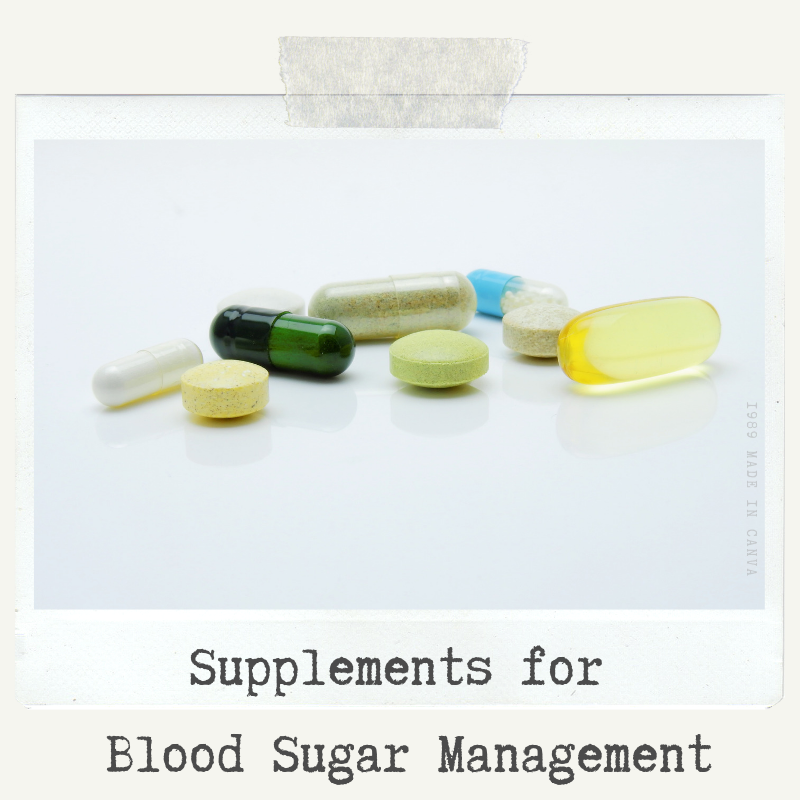- Home
- Health Center
- Health Info
- Supplements for Blood Sugar Management
How to Choose
Supplements for Blood Sugar Management


Diabetes is a chronic condition where there is too much sugar or glucose in your bloodstream. Our body cells depend on a hormone called insulin to take in sugar from food in order to make energy. In people with diabetes, the body does not produce enough insulin or cannot use insulin well, leading to raised sugar level in the blood.1,2
Over time, having too much sugar in your blood may lead to other health problems like heart disease, stroke, kidney failure, nerve damage, blindness and amputations.1 Therefore, it is important to control your blood sugar level to prevent or delay diabetes complications.
The cornerstone of managing type 2 diabetes is the combination of healthy diet and medication, with the aim of keeping the blood sugar level within normal range. Nevertheless, some supplements may play a role in supporting blood sugar control and this may benefit people with type 2 diabetes or prediabetes (borderline blood sugar level).
Here are some supplements that you may consider taking to control blood sugar level.
1. Bitter melon (Momordica charantia)4,5
Bitter melon is a green vegetable that contains several substances that can help to lower blood sugar level in many ways. The blood sugar-lowering actions exerted by bitter melon include inhibiting the absorption of glucose in the gut, acting like insulin to cause more glucose to enter the cells and helping our body to store glucose in liver and muscle. It may be consumed as a tea, juice or supplement in capsule form. The suggested dose of bitter melon extract is 300-600mg/day in divided doses.6
2. Gymnema (Gymnema sylvestre)
Gymnema is a herb used in Ayurvedic medicine. Studies suggest that gymnema may help to lower fasting blood sugar level and HbA1c level in people with type 1 and type 2 diabetes.4 It works by reducing the absorption of sugar in the gut, promoting the uptake of blood sugar into the cells and increasing insulin secretion from pancreatic cells.7 Gymnema is available in capsule form or as a tea. The suggested dose of gymnema extract ranges from 400-600mg/day in divided doses.4
3. Fenugreek 4,8
Fenugreek seed is a popular cooking ingredient and has been used in Ayurvedic medicine. It is high in soluble fibre that can slow down the digestion and absorption of carbohydrate, thus lower blood sugar level. It may also help to increase the amount of insulin released. It is available as a spice in whole or in powder form, as a tea or as supplement in capsule form with the dose ranging from 2.5g up to 100g daily.
4. Turmeric (Curcuma longa) 9,10
Turmeric, a spice made from the ground root of turmeric plant, has been used in Ayurvedic and traditional Chinese medicine. Its active ingredient known as cucurmin has anti-inflammatory and anti-diabetic properties. Curcumin can decrease blood sugar level and may help to prevent diabetes in people with prediabetes. The antidiabetic effect of curcumin is due to its ability to increase insulin production and improve our body’s responsiveness to insulin. In addition, curcumin may help to prevent diabetes-associated complications. Turmeric is widely available as a spice, tea or supplement in capsule and tablet forms. The doses of 500-2000mg per day of tumeric extract may be effective.
5. Chromium 4,7
Chromium, specifically trivalent chromium, is an essential trace element that is needed for metabolism of carbohydrate. Research on chromium supplementation in managing diabetes shows mixed results but there is good evidence that chromium may help to improve glucose tolerance, reduce fasting blood sugar level and HbA1c level by enhancing the effect of insulin and supporting the activity of insulin-producing cells. Since food contains very little amount of chromium, it may be beneficial for people with diabetes or prediabetes to take chromium supplements in the range of 200-800mcg/day in divided doses.
6. Vitamin D 11,12
Many of us know that vitamin D is essential for healthy bone and joints but it is little known that vitamin D deficiency can result in the development of diabetes. Vitamin D can be found in certain foods and can be produced by our body in response to sunlight exposure. Studies indicate that vitamin D may help to lower fasting blood sugar level by regulating the production of insulin and improving insulin sensitivity. There are two forms of vitamin D – D2 (ergocalciferol) and D3 (cholecalciferol), the latter is the active form that appears to be more effective. The daily recommended intake of vitamin D is 400-800IU/day while some studies suggest that a higher daily intake of 1000-4000IU is needed.
7. Alpha lipoic acid (ALA) 4
ALA is an antioxidant that is beneficial in treating diabetic neuropathy. Some studies suggest that it may help to reduce fasting blood sugar level by improving your body’s responsiveness to insulin and increasing the uptake of blood glucose into cells. ALA is available in tablet form and is taken at doses of 600-1200mg daily in divided doses before meals.
Bear in mind that these supplements may be helpful in lowering blood sugar level but they are not meant to replace your diabetes medication. Some supplements may interact with your medicine and cause your blood sugar to go too low. Therefore, always discuss with your healthcare professional before taking any supplements.
References:
- What is Diabetes? National Institute of DIabetes and Digestive and Kidney Diseases. (NIDDK). (Web accessed May 2019. Available at: https://www.niddk.nih.gov/health-information/diabetes/overview/what-is-diabetes
- Diabetes Mellitus.World Health Organization. (Web accessed May 2019). Available at: https://www.who.int/mediacentre/factsheets/fs138/en/
- Clinical Practice Guideline: Management of Type 2 Diabetes Mellitus. (2015). 5th ed. Putrajaya: Kementerian Kesihatan Malaysia.
- Diabetes and Dietary Supplements.Campbell AP (2010). Clinical Diabetes.
- Momordica charantia L. lowers elevated glycaemia in type 2 diabetes mellitus patients: Systematic review and meta-analysis. Peter E, Kasali F, Deyno S et al (2018). Journal of Ethnopharmacology.
- Nutritional and Therapeutic Interventions for Diabetes and Metabolic Syndrome. Najm W. California: Elsevier; 2012.
- Dietary Supplements for Diabetes: An Evaluation of Commonly Used Products. Shane-McWhorter L (2009). Diabetes Spectrum.
- An Overview of Herbal Products and Secondary Metabolites Used for Management of Type Two Diabetes. Ota A, Ulrih N (2017). Frontiers in Pharmacology.
- Curcumin and diabetes: a systematic review. Zhang DW, Fu M, Gao SH et al (2013). Evid Based Complement Alternat Med.
- Efficacy of Turmeric as Adjuvant Therapy in Type 2 Diabetic Patients. Maithili KSN, Sridhar MG, Swaminathan RP et al (2015). Indian J Clin Biochem.
- The Effects of Vitamin D Supplementation on Glucose Control and Insulin Resistance in Patients with Diabetes Type 2: A Randomized Clinical Trial Study. Yousefi Rad E, Djalali M, Koohdani F, et al (2014). Iran J Public Health.
- Vitamin D and Diabetes. Martin T, Campbell R (2011). Diabetes Spectrum.
Latest Health Info
Healthy Weight, Happy Joints
How Does Weight Affect Knee Health? The Link Between Pounds And Pain Osteoarthritis (OA) involves the degeneration of joints, which ...
The Gut Warriors: Prebiotics, Probiotics and Postbiotics
When it comes to gut health, you’ve probably heard of prebiotics and probiotics. But did you know there’s also ...
Tip Moreh: Masa Berbuka Puasa
Moreh adalah tradisi unik yang biasanya diadakan selepas solat tarawih pada bulan Ramadan. Ia melibatkan penyediaan dan perkongsian makanan ringan ...



